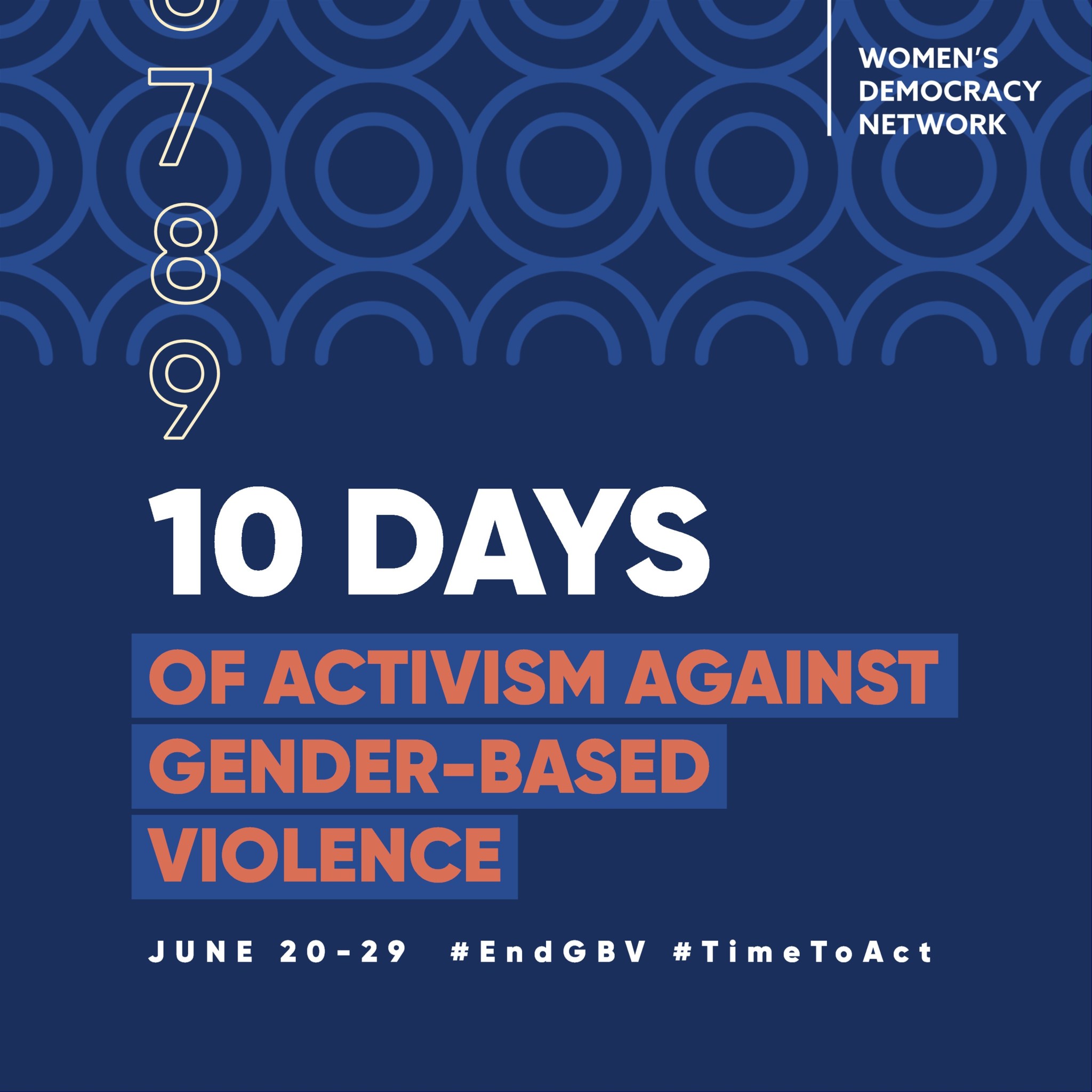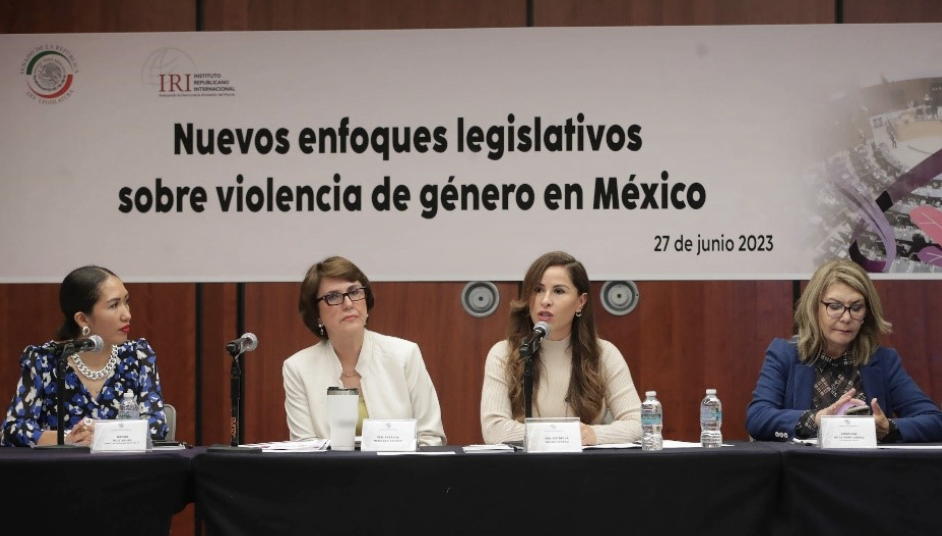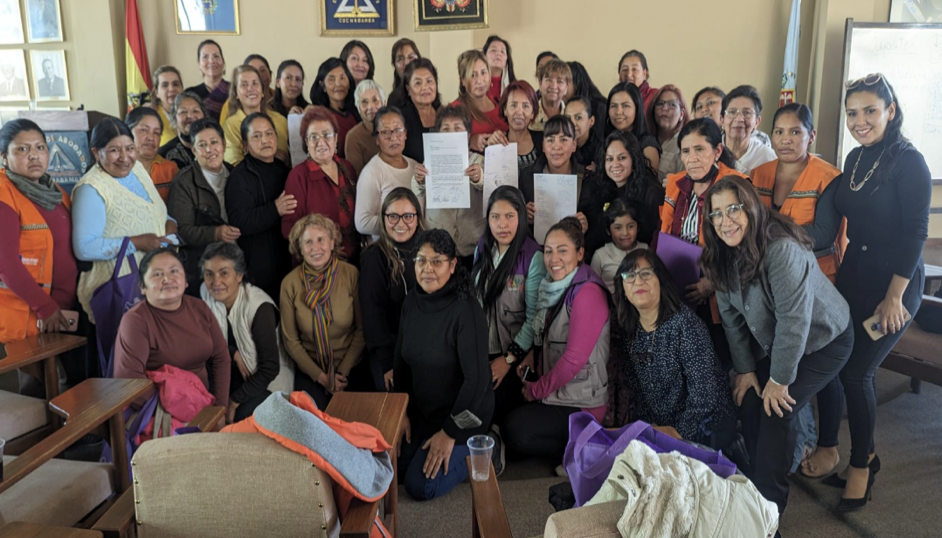IRI’s WDN Hosts 10 Days of Activism against Gender-Based Violence Campaign

The International Republican Institute’s (IRI) Women’s Democracy Network (WDN) hosted its fifth annual “10 Days of Activism against Gender-Based Violence” campaign in June. Understanding that gender-based violence (GBV) affects all people regardless of sex and gender identity, the campaign highlighted GBV against women and other traditionally marginalized groups, especially violence against women in politics (VAWP). By promoting information sharing, the campaign sought to increase the capacity of civil society actors, government officials, and community leaders to advocate for more gender-responsive policies that eliminate barriers to women’s full and meaningful political and civic participation.
WDN Increases GBV Awareness through Digital Platforms
WDN’s social media toolkit was translated into six languages to promote transnational collaboration and knowledge sharing across the digital space. On Facebook, Instagram, TikTok, and Twitter, WDN’s posts received a total of 212,335 engagements, thanks to 40 participating accounts globally. On Twitter alone, WDN gathered more than 63,000 impressions, a 270% increase from 2022. WDN’s social media campaign increased accessibility and global reach, which created more expansive, multilingual dialogues; in addition to English, captions and informational graphics were also available in Arabic, Bahasa Indonesia, French, Portuguese, and Spanish.
| Platform | Number of Engagements |
|---|---|
| 3,730 | |
| 143,019 | |
| TikTok | 2,457 |
| 63,129 | |
| Total Number of Engagements | 212,335 |
WDN-Africa Regional Network Leads Dialogues on VAWP
WDN, through its regional network in Africa, hosted a webinar on VAWP during elections. The webinar included six panelists from Cameroon, Ghana, Kenya, Nigeria, Uganda, and Zimbabwe who addressed VAWP and best practices for healing from trauma due to violence endured during campaigns. Panelists, such as Ngunan Addingi from Nigeria, and Aisha Waligoo, founder of the Inter Party Women’s Platform in Uganda, shared their experiences as candidates and the violence they encountered both online and in person. The panelists, as well as Afia Appiah and Perry Aritua from WDN Africa’s Regional Board, also shared solutions to addressing these issues, such as implementing laws that prosecute violence and sexual harassment against women candidates, increasing male allyship to help mitigate GBV, and creating women-focused environments to discuss and grapple with past traumas.

WDN Hosts LAC Legislators in Mexico City for a GBV-Focused Exchange
Legislation is not change; change is generated by example.
Senator Paloma Valencia
WDN hosted a regional GBV Exchange in Mexico City, which brought together legislators from Bolivia, Colombia, Ecuador, and Mexico for a comprehensive examination of the regional successes and challenges encountered in the development and implementation of GBV-related legislation. The event included panels that touched on Mexico’s Campo Algodonero case and key takeaways and policy solutions to protect women politicians, especially those marginalized due to other identities, from violence. Colombian Senator Paloma Valencia illustrated the pivotal role female politicians play in GBV prevention, noting that “legislation is not change; change is generated by example. There are permanent fights that [we as representatives] must fight.”
WDN Holds GBV Prevention Events Across Bolivia, Colombia, and Ecuador
WDN conducted events across Bolivia, Colombia, and Ecuador to address GBV on the ground. In Bolivia, in conjunction with a nonprofit women’s rights organization Oficina Juridica para la Mujer (OJM), WDN supported four events focused on improving institutional responses to GBV. In addition to workshops designed for municipal governments to support stronger coordination for implementing protections, OJM also held a civil society exchange where women community activists were trained in the latest legal regulations to support and offer advice to women experiencing violence. In Colombia, participants focused on raising awareness through content creation on sensitive topics, such as physical and psychological violence, and created a hashtag called #ClickSinViolencia (#ClickWithoutViolence) to promote online conversations surrounding electoral VAWP. In Ecuador, participants discussed the lack of civic education and awareness of available legal and health services for survivors of violence and the need for tools to strengthen family dynamics to prevent domestic violence in marginalized communities. These events across the region allowed participants to share their experiences with and questions about GBV, leading to greater awareness and revitalized aspirations for action in communities.

Next Steps
The 10 Days against GBV campaign illustrated the interconnectedness and strength of WDN’s global network. The success of the global campaign indicates that GBV and VAWP are relevant issues that people experience globally, and that further awareness and calls for greater accountability across various sectors of society could lead to action to end GBV once and for all.
Top